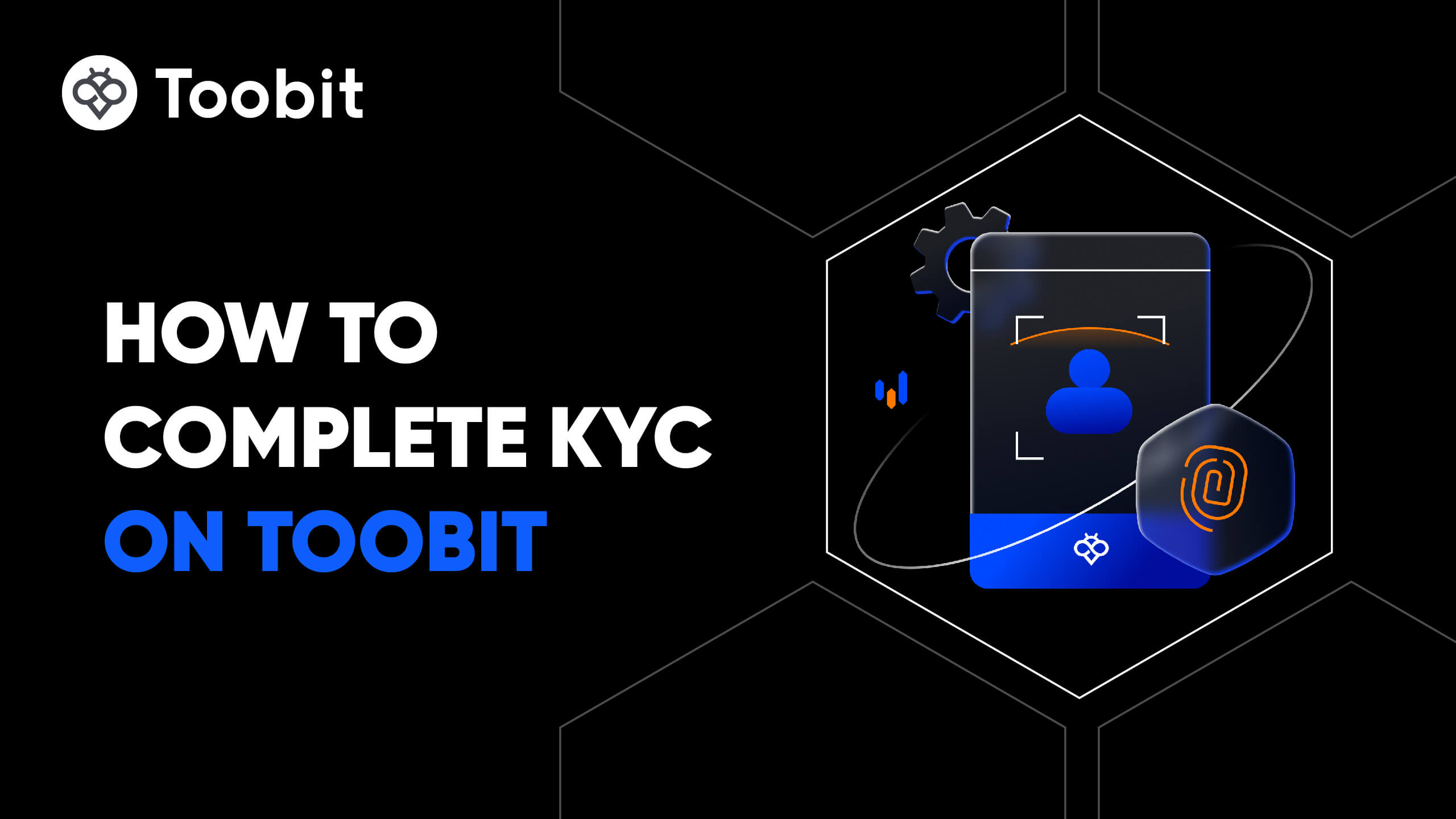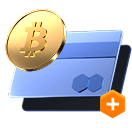Preço de Internet Computer
ICPInformações do mercado de Internet Computer
Preço ao vivo de Internet Computer hoje em USD
Quanto vale 1 ICP em ?
Sobre Internet Computer(ICP)
Histórico de preços de Internet Computer
Por que o preço de Internet Computer sempre oscila?
Quais fatores afetam o desempenho dos preços de Internet Computer?
Preços globais de Internet Computer
Como comprar Internet Computer
Junte-se ao Toobit agora!
Cadastre-se na Toobit com seu e-mail/número de celular e país de residência e crie uma senha forte para proteger sua conta.
Verifique sua identidade
Complete a verificação de identidade enviando seus dados pessoais e um documento de identificação com foto válido.
Adicione um método de pagamento e compre Internet Computer (ICP)
Adicione um cartão de crédito/débito ou conta bancária após verificar sua conta Toobit. Use várias opções de pagamento para comprar Internet Computer na Toobit.
Negocie contratos futuros perpétuos de ICP
Após se cadastrar na Toobit e comprar USDT ou tokens ICP, você pode começar a fazer trade de Derivatives, incluindo futuros ICP e Margin trading para aumentar sua renda.
Participe do Copy Trading de ICP com Traders Líderes
Após se registrar na Toobit e comprar com sucesso USDT ou tokens ICP, você também pode começar o copy trading seguindo Traders Líderes.
Onde posso comprar Internet Computer?
Compre cripto no app da Toobit
Cadastre-se em poucos minutos para comprar cripto via cartão de crédito ou transferência bancária.
Negocie na Toobit
Deposite suas criptomoedas na Toobit e aproveite alta liquidez e taxas de negociação baixas.
Seção de vídeo — verificação rápida, negociação rápida

Como concluir a identificação na Toobit e se proteger contra fraudes
- 1.Entre na sua conta Toobit.
- 2.Se você é novo na Toobit, assista ao nosso tutorial sobre como criar uma conta.
- 3.Clique no ícone de perfil no canto superior direito da barra de navegação e depois toque na página de Identificação.
FAQ Sobre ICP
O que é o Internet Computer (ICP)?
Internet Computer (ICP) é um conjunto inovador de protocolos projetados para permitir que centros de dados independentes em todo o mundo colaborem e criem um sistema de computação global descentralizado. A visão central do ICP é construir um novo tipo de internet descentralizada que desafie os provedores de serviços em nuvem tradicionais, como Amazon Web Services (AWS) e Google Cloud. Ao conectar centros de dados independentes, o ICP oferece uma alternativa à infraestrutura centralizada que atualmente alimenta a maior parte da internet moderna.Com sua arquitetura inovadora, o Internet Computer fornece uma plataforma escalável e eficiente para construir uma ampla gama de sistemas e serviços online, incluindo aplicações web de alta demanda—sem depender da infraestrutura de TI tradicional. Isso torna o ICP uma solução ideal para desenvolvedores que buscam criar aplicações descentralizadas (dApps) com maior velocidade e segurança.O ICP também possui seu próprio token nativo, que serve a múltiplos propósitos dentro do ecossistema. O token é usado para governança da rede, onde os detentores podem votar na direção futura da plataforma, bem como para recompensar participantes por suas contribuições e pagar taxas de transação. Originalmente conhecido como DFINITY, a rede Internet Computer é capaz de executar a maioria das aplicações da internet tradicionalmente suportadas por padrões como DNS (Sistema de Nomes de Domínio), tornando-a totalmente compatível com os protocolos atuais da internet.Como comprar ICP
Para comprar ICP, você pode seguir estas etapas gerais:1. Escolha uma bolsa de criptomoedas e Crie uma ContaComece selecionando uma plataforma de criptomoedas respeitável e confiável que suporte a negociação de ICP. Você também pode comprar ICP aqui na Toobit. Inscreva-se.2. Complete a Verificação (Não Obrigatório):Leia nosso guia Como Completar a Identificação na Toobit para mais informações.3. Deposite Fundos:Deposite fundos na sua conta Toobit. Isso pode ser feito via cartões de crédito/débito ou sua carteira de criptomoedas.4. Navegue até ICP:Uma vez que sua conta esteja financiada, navegue até a seção de Mercados da plataforma.5. Compre ICP:Localize ICP na lista de criptomoedas disponíveis.Faça um pedido de compra. Leia nosso guia Como Comprar Cripto na Toobit para mais informações.Como vender ICP?
Você pode vender ICP para USDT aqui na Toobit. Leia nosso guia sobre Como negociar à vista na Toobit para mais informações.Qual é o preço do ICP agora?
Está à procura do preço do ICP? O preço ao vivo do ICP é atualizado em tempo real no Toobit.Como Retirar ICP no Toobit?
Você pode retirar ICP e outros tokens de criptomoeda em USDT aqui no Toobit. Leia nosso Guia de Como Retirar Cripto no Toobit para mais informações.Como funciona o Internet Computer?
O Internet Computer (ICP) opera executando contratos inteligentes de canister em uma rede de máquinas de nó interconectadas. Essas máquinas de nó comunicam-se e coordenam-se usando o Protocolo do Internet Computer (ICP), permitindo uma interação perfeita em uma rede descentralizada global. Conforme destacado pela MIT Technology Review, o Internet Computer não depende de servidores fixos como o Google Cloud, mas se move entre centros de dados independentes em todo o mundo. Essa abordagem dinâmica permite que a rede ICP funcione sem um endereço físico fixo, garantindo maior flexibilidade e descentralização.Em termos simples, o ICP transforma criptomoeda em poder de computação. Os desenvolvedores são cobrados com base na quantidade de poder de processamento necessário para seus projetos, e a plataforma continuará a hospedar o site ou aplicativo na internet pública enquanto as taxas necessárias forem pagas. Isso fornece uma alternativa escalável e descentralizada aos serviços de nuvem tradicionais.A rede é governada por um sub-rede mestre, que supervisiona o funcionamento do Internet Computer. O Sistema Nervoso da Rede (NNS), uma Organização Autônoma Descentralizada (DAO), é responsável por gerenciar as operações da rede. Ele fornece controle sem permissão, instruindo as máquinas de nó sobre como estruturar a rede e garantindo que as instruções que recebem sejam autênticas.Quais são os casos de uso potenciais para o Internet Computer?
Muitas aplicações web populares hoje são de código fechado, proprietárias e hospedadas em data centers centralizados pertencentes a grandes empresas de tecnologia. Este modelo centralizado introduz riscos significativos, como a possibilidade de falhas generalizadas se um data center crítico falhar. Além disso, para usuários preocupados com a privacidade, os provedores de serviços centralizados têm a capacidade de censurar ou desativar aplicações a seu critério.O Internet Computer (ICP) visa resolver esses problemas oferecendo uma alternativa fundamental. Ele capacita os desenvolvedores a construir, hospedar e servir aplicações de forma descentralizada, implantando diretamente sites e serviços na internet pública. Esta infraestrutura descentralizada elimina a dependência de sistemas de TI tradicionais e data centers centralizados, garantindo que as aplicações web possam operar em um ambiente à prova de adulterações e imparável.Com o Internet Computer, os desenvolvedores podem criar uma ampla gama de serviços online, incluindo aplicações web que exigem muitos recursos, sem a necessidade de infraestrutura tradicional de nuvem. A plataforma suporta sistemas e serviços totalmente descentralizados que podem interagir de forma confiável com o mundo exterior, tornando-a ideal para aplicações que vão desde redes sociais (semelhantes ao LinkedIn ou TikTok) até novos tipos de software e serviços que ainda não foram concebidos.Uma vantagem chave do ICP é o uso de padrões abertos, que reduz os conflitos de interesse comuns com provedores de nuvem centralizados que hospedam serviços concorrentes. Ao permitir uma internet verdadeiramente descentralizada, o Internet Computer permite maior transparência, privacidade e liberdade na construção da próxima geração de aplicações web.Qual é a história do Internet Computer?
O Internet Computer foi desenvolvido pela Fundação DFINITY, uma organização sem fins lucrativos com sede em Zurique, Suíça. Estabelecida em outubro de 2016, a fundação foi criada com o objetivo de desenvolver uma plataforma descentralizada baseada em blockchain, capaz de suportar a próxima geração de aplicações de internet.O fundador visionário do projeto, Dominic Williams, inicialmente introduziu o termo DFINITY no início de 2015 para descrever seu trabalho teórico na criação de um Computador Mundial — um sistema de computação descentralizado que poderia transformar a internet como a conhecemos.Em fevereiro de 2017, a Fundação DFINITY lançou uma Oferta Inicial de Moedas (ICO) antecipada para arrecadar fundos e expandir seu ambicioso projeto de código aberto. A fundação continuou a crescer através de rodadas adicionais de financiamento privado em 2018. Em meados de 2022, a DFINITY empregava quase 300 profissionais, principalmente em pesquisa e desenvolvimento (P&D), trabalhando para refinar e expandir o ecossistema do Internet Computer.Com uma equipe forte de criptógrafos e pesquisadores, muitos dos quais possuem mais de 100.000 citações acadêmicas e 200 patentes, a Fundação DFINITY se posicionou na vanguarda da inovação em blockchain, contribuindo significativamente para o desenvolvimento de tecnologias descentralizadas.Indicadores de Previsão de Preço do Internet Computer
As médias móveis são ferramentas essenciais para a previsão de preços do Internet Computer (ICP), fornecendo insights valiosos sobre as tendências do mercado. Uma média móvel calcula o preço médio de fechamento do ICP ao longo de um período específico, dividido em intervalos iguais. Por exemplo, uma média móvel simples (SMA) de 12 dias soma os preços de fechamento do ICP nos últimos 12 dias e divide por 12, oferecendo uma linha suave para acompanhar o comportamento do preço do ativo.Além da média móvel simples (SMA), os traders frequentemente utilizam a média móvel exponencial (EMA), que dá mais peso aos preços recentes, tornando-a mais sensível às mudanças recentes de preço. A EMA reage mais rapidamente às flutuações do mercado, oferecendo uma representação mais dinâmica das tendências de preço do ICP.Alguns dos períodos mais populares para médias móveis incluem as médias móveis de 50 dias, 100 dias e 200 dias. Esses indicadores são amplamente utilizados no mercado de criptomoedas para identificar níveis críticos de suporte e resistência para o ICP. Se o preço do ICP subir acima de qualquer uma dessas médias móveis, é tipicamente visto como um sinal de alta. Por outro lado, se o preço do ICP cair abaixo dessas médias, muitas vezes sinaliza fraqueza no mercado.Além das médias móveis, os traders também confiam no Índice de Força Relativa (RSI) e nos níveis de retração de Fibonacci para avaliar ainda mais os movimentos potenciais de preço e determinar a direção futura do ICP.Como ler gráficos do Internet Computer e prever movimentos de preços?
Os gráficos de velas são amplamente utilizados por traders porque oferecem informações mais detalhadas do que gráficos de linha simples. Esses gráficos mostram a ação de preço do Internet Computer (ICP) em intervalos de tempo variados, proporcionando aos traders a flexibilidade de escolher diferentes níveis de granularidade. Por exemplo, um gráfico de velas de 5 minutos oferece insights sobre movimentos de preços de muito curto prazo, enquanto um gráfico de velas semanal ajuda a identificar tendências de longo prazo. Os gráficos de velas de 1 hora, 4 horas e 1 dia estão entre os períodos de tempo mais comumente usados para analisar o ICP.Vamos tomar o gráfico de velas de 1 hora como exemplo. Cada "vela" representa a ação de preço do ICP dentro de um período de 1 hora. Essas velas mostram detalhes importantes de preço, incluindo o preço de abertura, preço de fechamento, bem como os preços mais altos e mais baixos que o Internet Computer alcançou durante o período de 1 hora. Isso permite que os traders identifiquem flutuações de preço chave e tomem decisões informadas.Também é essencial interpretar a cor das velas. Uma vela verde significa que o preço de fechamento foi maior do que o preço de abertura, indicando um sentimento de mercado otimista. Por outro lado, uma vela vermelha mostra que o preço de fechamento foi menor do que o preço de abertura, muitas vezes sinalizando tendências de baixa. Alguns gráficos podem usar corpos de velas ocos e preenchidos em vez de cores para representar os mesmos movimentos de preço.



